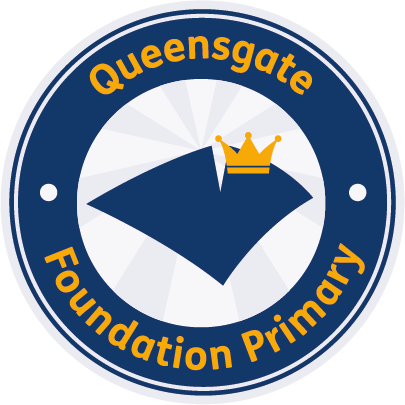KS1 & KS2 Spelling lists are produced by Topical Resources. Further details can be found by visiting www.topical-resources.co.uk. We are unable to publish full spelling lists due to copyright restrictions.
To support children's learning of phonics in KS1 we use Teach Hub Letters and Sounds Phonics Programme.
PE
Please click on the button below to see our PE Curriculum Overview
PE Curriculum Overview
Please click on the button below to access the Queensgate Competition and Physical Events Calendar and Competition Overview
Queensgate Competition and Physical Events Calendar
Please click below to access our PE and Sports Premium
Music
Please click on the button below to see our school Music Curriculum Map and Music Development Plan.
Music Curriculum Map
RE
The Right of Withdrawal from Religious Education
Religion and belief have become more visible in public life in recent years, making it important that all pupils should have an opportunity to engage in RE. However, the parent of a pupil at a community, foundation or voluntary school (or pupils themselves if they are aged 18 or over) may request that they be excused from all or part of the religious education (RE) provided.
Parents who wish to withdraw their children from RE should be aware of its aims and what is covered in the RE curriculum and that they are given the opportunity to discuss this if they wish. It should be made clear whether the withdrawal is from the whole RE curriculum or specific parts of it. No reasons need be given
Important - limitations to withdraw
- If pupils are withdrawn from RE, schools have a duty to supervise them, though not to provide additional teaching. A pupil may be required to work in another area of the school, such as library or break out area.
- Whilst parents or carers have a right to withdraw children from RE, they should note that children may also encounter religions and beliefs and wider aspects of faith in other areas of the curriculum from which there is no right of withdrawal.
- On occasion, spontaneous questions about religious matters are raised by pupils or issues related to religion arise in other curriculum subjects such as history or citizenship (PSHE) For example, schools promote community cohesion and help pupils to understand ideas about identity and diversity, feelings and emotions within both religious and non-religious contexts.
Managing the Right of Withdrawal
If pupils are withdrawn from RE, schools have a duty to supervise them, though not to provide additional teaching or to incur extra cost. Pupils will usually remain on school premises where it is feasible and appropriate.
Where a request for withdrawal is made, the school must comply and excuse the pupil until the request is rescinded. Though not legally required, it is good practice for a head teacher to invite parents to discuss their written request.
(Section 71(3), School Standards and Framework Act 1998).
RE Curriculum
The RE curriculum forms an important part of our school’s spiritual, moral and social teaching.
Our RE curriculum is based on the Isle of Wight Local Authority’s (LA) Agreed Syllabus (Living Difference) and it meets all the requirements set out in that document. The Education Act 1996 states that an Agreed Syllabus must reflect the fact that the religious traditions in Great Britain are in the main Christian, whilst taking account of the teachings and practices of the other principal religions represented in Great Britain. It must be non-denominational and must not be designed to convert pupils to a particular religion.
We have used the locally agreed syllabus and added additional aspects to ensure that it meets the needs of the children at Queensgate We have ensured that there is progression throughout the school and that each concept studied follows a cycle of important elements and skills. These are:
Communicate - where children have a chance to listen and share ideas
Apply - where children take the information they have learned and apply it to their own lives and experiences
Inquire - where children ask questions and try to find out additional information
Contextualise - where children explain their learning to their own lives and experiences or a specific religion
Evaluate - children debate and come to their own conclusion about the concept learnt
Living Differences
Computing
Queensgate use two schemes to meet the requirements of the National Curriculum. We use Teach computing and iLearn2. Teachers use the lessons as starting points and adapt where necessary. Below are details of Queensgate’s Computing Intent, Implementation and Impact statements. Also included are some links to useful sites.
Intent, Implementation and Impact Statement
PSHE
PSHE education develops the skills and attributes that pupils need to thrive as individuals, family members and members of society. It equips pupils to live healthy, safe, responsible and balanced lives. PSHE education enables children to recognise, accept and shape their identities, to understand and accommodate difference and change, and to manage emotions.
Our PSHE curriculum is split into 3 main areas:
• Health and Wellbeing
• Relationships
• Living in the Wider World
Please click on the button below to view our PSHE curriculum.
PSHE Curriculum overview
Anti Bullying
Please click on the button below to see our anti bullying leaflet.
Anti Bullying
National Curriculum
To find out more about the National Curriculum, please click on the link below.
National Curriculm
